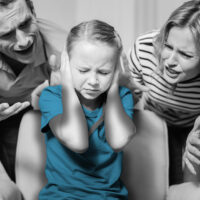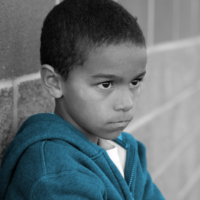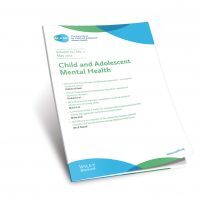Child maltreatment
-

Shore: a safe place for young people worried about sexual behaviour
Children and young people engaging in harmful sexual behaviour is a national public health issue, affecting thousands of young people across the UK every year. Despite this, there are few services available to support young people once harm has taken place and even fewer for young people concerned about their own or someone else’s sexual thoughts, feelings or behaviour.
- Event type
- Talk with Q&A
- Location
- LIVE STREAM
-

Words Matter: Understanding, Impact, and Prevention of Childhood Verbal Abuse
Set of three webinars on Childhood Verbal Abuse (CVA). This is characterised by adults shouting, yelling, denigrating, and verbally threatening the child. These types of adult actions can be as damaging to a child’s development as other currently recognized and forensically established subtypes of maltreatment such as childhood physical and sexual abuse.
- Event type
- 3 x90min webinars
- Location
- LIVE STREAM
-

Responding to sibling sexual abuse – putting research into action
This workshop will outline current knowledge and evidence in the sibling sexual abuse field and look at how that knowledge can be used to inform how we positively support a family’s journey, from identification of harm, safety planning and assessment, through to therapeutic intervention, case closure and aftercare support
- Event type
- Live Stream
- Location
- LIVE STREAM
-

Trauma Aware Education
Dr. Judith Howard, Associate Professor of Education at Queensland University of Technology (QUT), and Dr. Lyra L’Estrange, Senior Lecturer in Education at Queensland University of Technology (QUT), will lead this session on Trauma Aware Education on ‘An education system solution to the complex systemic problem of child abuse and neglect: One Australian university’s approach’.
- Event type
- Live Stream
- Location
- LIVE STREAM
-

Dr. Daniel Shaw
Dr. Daniel Shaw is the Director of the Center for Parents and Children and the Pitt Parents and Children Laboratory. He also serves as Distinguished Professor in the Department of Psychology at the University of Pittsburgh, with joint appointments in the Departments of Pediatrics and Psychiatry in the School of Medicine, the School of Education, the Clinical and Translational Science Institute, and Center for Social and Urban Research.
Read more -

Characteristics of complex posttraumatic stress disorder (PTSD) in young people with PTSD following multiple trauma exposure
Open Access paper from the JCPP – ‘The objective of the present study was to investigate how trauma characteristics, comorbid psychopathology and cognitive and social factors experienced by children and adolescents with a posttraumatic stress disorder (PTSD) diagnosis following exposure to multiple traumatic events differs between those who meet the criteria for CPTSD and those who do not.’ Katie Lofthouse et al.
Read more -

Mental health and care-experienced young people: are our mental health support services appealing and accessible?
Children in care are much more likely to experience mental health problems than young people in the general population. Early life experiences, such as abuse, neglect, parental drug-use or violence likely play a major part in this. So too could the instability that is often inherent in the care system.
Read more -

Trauma informed practice in safeguarding
Delegates only.
Read more
ACAMH in collaboration with Child & Family Training presents a series of four online sessions on ‘Trauma informed practice in safeguarding – The provision of effective toxic stress and trauma informed responses and support for children and young people affected by abuse and neglect.’ -

Practitioner Review: Neurobiological consequences of childhood maltreatment – clinical and therapeutic implications for practitioners
Paper from the JCPP – ‘In this report, we explore key validated alterations in brain structure, function, and connectivity associated with exposure to childhood maltreatment as potential mechanisms behind their patients’ clinical presentations.’ Jacqueline A. Samson (pic) et al.
Read more -

CAMH Editorial, Volume 28, Issue 3, September 2023
CAMH September 2023 Editorial is now available to read.
Read more